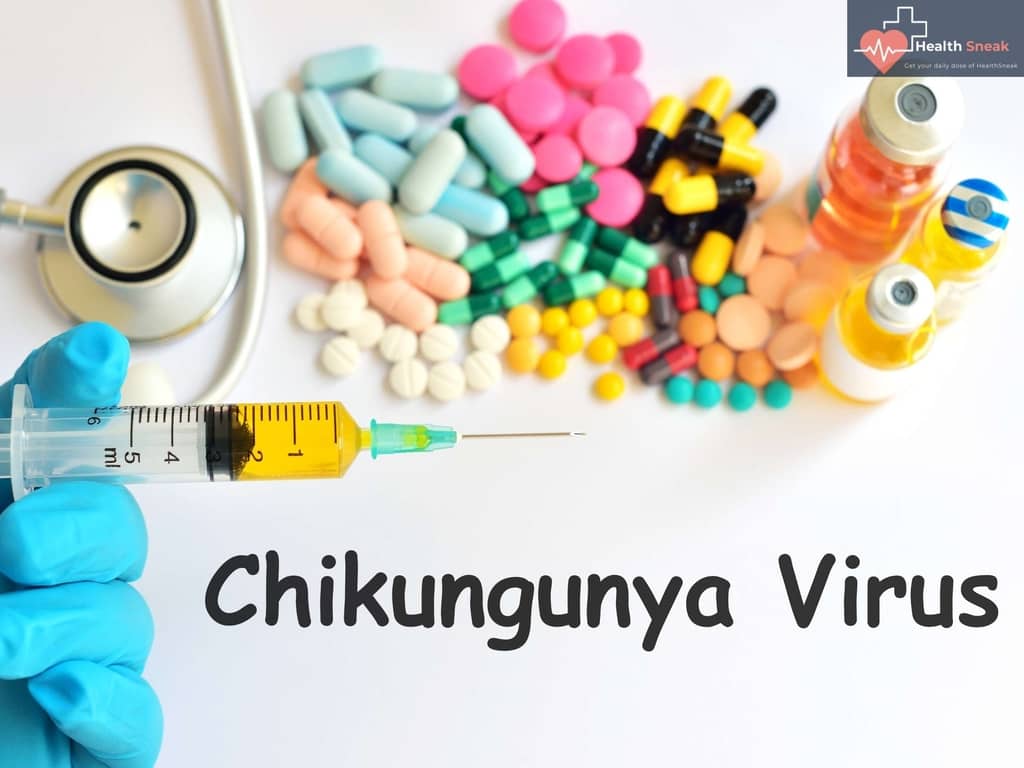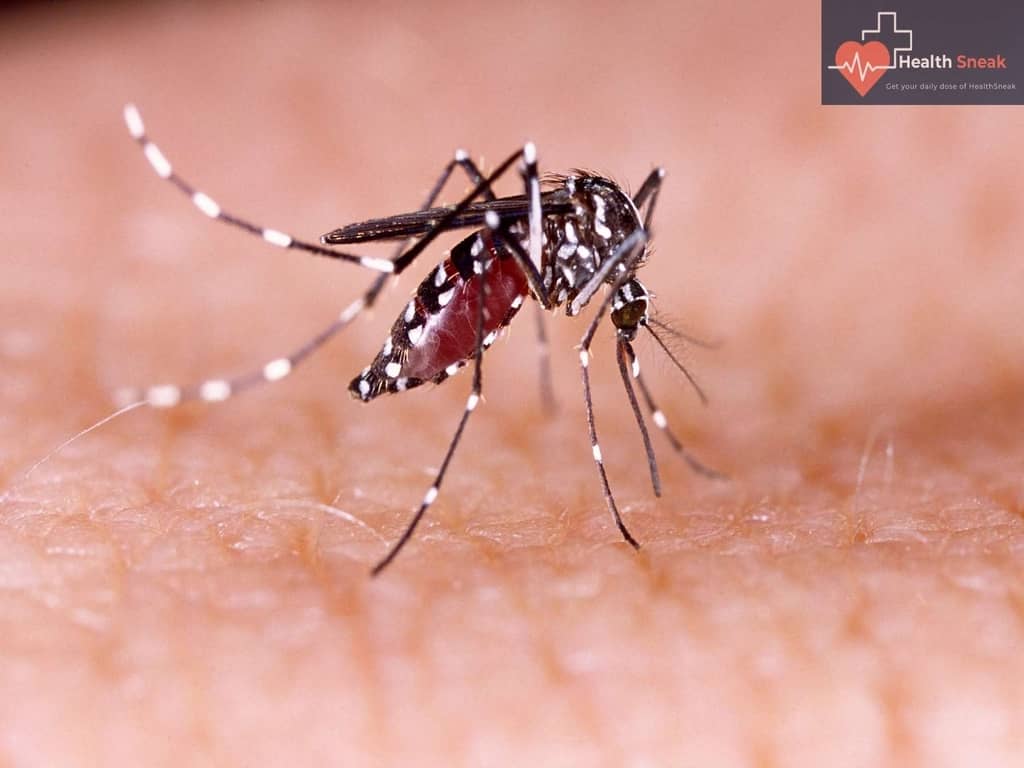Chikungunya virus is transmitted to people through the bite of a mosquito infected. The most typical symptoms of infection include joint pain and fever. Other signs could consist of muscle pain, headache, joint swelling, or the appearance of a rash. The outbreaks have been reported in Africa, the Americas, Asia, Europe, the Caribbean, Indian, and Pacific Oceans. There is a possibility that the virus will spread to areas not affected by infected travelers. There is no vaccine or treatment for the Chikungunya-like virus. Travelers can safeguard themselves by avoiding bites from mosquitoes. If you are traveling to countries with Chikungunya virus repellents, wear long-sleeved shirts and pants, remain in rooms equipped with air conditioning, or have screens on windows and doors.

Chikungunya Virus
Chikungunya virus is part of the family of Togaviridae, also known as genus Alphavirus. Alphavirus infections may result in neuroinvasive or arthralgic diseases. Other important medically relevant alphaviruses throughout the Americas include the eastern equine encephalitis virus (neuroinvasive) and the Mayaro virus (arthralgic). Chikungunya virus is a one-stranded positive-sense RNA genome. Its particles form wrapped in icosahedral capsids, which are 60-70 millimeters.
Origin of Chikungunya Virus
Chikungunya outbreaks first became known throughout Africa, Asia, Europe, and islands located in islands in the Indian and Pacific oceans. The first instance of Chikungunya occurring in the Americas was in 2013 on islands located in the Caribbean.
Since then, over 1.7 million cases suspected of Chikungunya have been reported throughout The Caribbean islands, Latin American countries, and the United States. Canada, along with Mexico, also have confirmed cases of infection. If you wish to check
Chikungunya virus in the United States
- Before 2006, the chikungunya virus was not often detected within U.S. travelers.
- Between 2006 and 2013, studies revealed an average of 28 individuals each calendar year within the United States with positive tests for the recent chikungunya virus (range 5-65 people per year). They were all travelers who were returned to the United States from affected areas in Asia, Africa, or the Indian Ocean.
- In the last quarter of 2013, the first local transmission of the chikungunya virus within the Americas was detected within Caribbean states and territories. Local information indicates that mosquitoes living in the region have been affected by the virus and have spread it to others.
- Since 2014, chikungunya disease cases have been discovered in U.S. travelers returning from affected regions within the Americas. Local transmission was detected throughout Florida, Texas, Puerto Rico, and the U.S. Virgin Islands.
- Chikungunya virus disease was declared an officially recognized condition in the year 2015. The cases have been submitted to CDC by local and state health departments using the standard case definitions.

Should you be concerned?
Most people fully recover, and symptoms disappear within three to 10 days. Some people experience joint pain that can persist for months or years. The risk of death due to Chikungunya-related complications is exceptionally uncommon; however, this virus can trigger severe issues, mainly for older adults with other chronic diseases. Patients who have had a previous infection are susceptible to being protected against the possibility of acquiring another infection.
If you’re going to an area with known Chikungunya outbreaks, you should be aware of the precautions. Since Chikungunya can’t be transmissible from one person to another, preventive measures focus on preventing mosquitoes from being infected. Make use of insect repellents that contain picaridin or DEET, wear long sleeves and pants and keep your feet inside or in protected areas whenever possible.
If you’re an older person or suffer from conditions like heart disease or diabetes are at a higher chance of developing severe illness. Beware of traveling to areas where there are continuous chikungunya outbreaks.
When to consult a Doctor?
Visit your physician if you believe that you or a member of your family might have Chikungunya. It’s vital if you’ve recently traveled to a region where there’s an active outbreak. The doctor may recommend tests on your blood to determine if you have Chikungunya and other related illnesses. If you’re suffering from Chikungunya, staying away from new mosquito bites can help stop the spread of the virus.
Symptoms of Chikungunya
- The majority of people infected by chikungunya viruses will experience various symptoms.
- Symptoms typically begin 3-7 days after a mosquito bite you.
- The most commonly reported symptoms are joint pain. The severity of joint pain is same like that of Rheumatoid Arthritis.
- Other signs could include muscle pain, headache, joint swelling, and rash.
- Death from Chikungunya is rare.
- The majority of patients feel better after one week. However, joint pain may be debilitating and severe and last for months.
- The people at risk of more severe diseases are infants affected at birth, elderly individuals (>=65 years), and those suffering from medical conditions like diabetes, high blood pressure, or heart disease.
- Once infected, the person is more likely to be safe against future infections.
Diagnosis of Chikungunya
Visit your physician when you’ve visited the area where Chikungunya has been present, and you have the symptoms mentioned above. Inform your doctor about the time and where you went.
Your doctor may request blood tests to check for Chikungunya or other viruses similar to Dengue or Zika.
Treatment of Chikungunya
No vaccine can prevent the disease or treat Chikungunya.
The symptoms to treat:
- Take a good night’s rest.
- Drink fluids to prevent dehydration.
- Use medicines such as Acetaminophen (Tylenol(r)) and paracetamol for reducing discomfort and fever.
- Avoid taking aspirin or any other non-steroidal anti-inflammatory drugs (NSAIDS) up to the point that dengue is eliminated to lower the chance for bleeding.
- If you’re taking medication for a medical issue, speak to your healthcare professional before using any additional drugs.
- If you’re suffering from Chikungunya, be sure to avoid mosquito bites for the first week following the illness.
- Within the first day of the illness, Chikungunya disease is found in the blood. The virus is transmitted from an affected person to the mosquito by bites.
- An infected mosquito could then transmit the virus to people around them.
Transmission of Chikungunya
Chikungunya virus is transmitted to humans by biting a mosquito infected, mostly Aedes aegypti and Aedes albopictus. The human body is the primary host of the virus during times of epidemic. Mosquitoes contract the virus by feeding on an individual already suffering from the virus.
Chikungunya virus transmission via blood virus is possible. Cases have been reported among the laboratory personnel who handle blood contaminated with the virus and a healthcare professional who draws blood from an infected patient.
In utero transmissions that are rare have been reported, mainly in the first trimester. The transmission of the virus during pregnancy was also observed in cases where the mother was ill at the time of the birth. Chikungunya virus has not been detected in breast milk, and there has been no evidence yet of infants getting chikungunya virus through breastfeeding. Since breastfeeding’s benefits may exceed the risk for chikungunya virus infection among infants breastfeeding and mothers, it is recommended to breastfeed, even those suffering from chikungunya virus or residing in an area of ongoing virus transmission.
The possibility of someone transmitting the Chikungunya virus through bites of a mosquito or via blood is most significant when the person is infected within the first week after an illness.
Beware of getting sick from Chikungunya by stopping insect bites.
Prevention of Chikungunya Virus
Bites of a mosquito infected can spread the chikungunya virus—the mosquito bites during the day and at night. There isn’t a vaccine to protect against chikungunya viruses. The best method to avoid Chikungunya is to shield yourself from bites by mosquitoes. Apply insect repellent, wear long-sleeved pants and shirts as well as treat your gear and clothing and make sure you keep mosquitoes out of your home and garden.

Lower Your Risk for Mosquito Bites
- If you’re heading to an area with an outbreak, there are a few steps to reduce the chance of getting at risk of being bitten by mosquitoes.
- Long sleeves are a must. Wear pants and long sleeves.
- You can stay in areas that are screened in or inside where there’s air cooling.
- If you’re in a location that doesn’t have cooling or a screen on the windows, be sure that there’s a mosquito screen over your mattress.
- If you are outside in the sun with no sleeves, you should wear the repellent for mosquitoes that contains DEET. If you must apply sunscreen, put it on first.
- Do not flush out any water standing in containers for flowers in your hotel or homeroom.
- If you’ve experienced Chikungunya previously, it’s unlikely that you’ll be bitten the next time around.
Read more about:
How to treat Dandruff | Best Treatment of Rheumatoid Arthritis | Epiphyseal Plates | Excedrin Migraine | Treatments of Cervical Strain
Treatment of Chilblains | Benefits of Lemon Tea | Hair Transplant Cost | Benefits of Peanuts | Wrist Blood Pressure Monitor
Treatments of Morning Sickness | Benefits of Pomegranate Tea | Treatment of Asthma | Overhydration | Is whey protein safe to drink
Cerebral Infarction | Pomegranate Tea | How to survive Heart Attack | Benefits of Peanuts